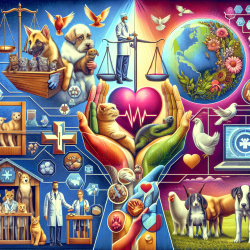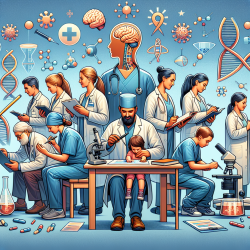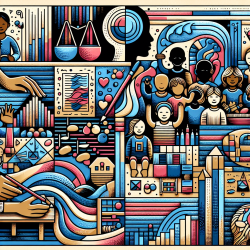Introduction
As the world evolves, so too must the field of veterinary medicine. The article "Recalibrating Veterinary Medicine through Animal Welfare Science and Ethics for the 2020s" highlights the importance of integrating animal welfare and ethics into veterinary practice. This shift is not merely a response to public expectations but a necessary evolution for the profession to remain relevant and effective in the 21st century.
Beyond Traditional Health: A Holistic Approach
Veterinarians are traditionally seen as experts in treating diseases. However, the article suggests that a more holistic view that includes animal welfare is essential. This means considering not just the physical health of animals but also their psychological well-being and environmental factors. By adopting this broader perspective, veterinarians can provide more comprehensive care that truly benefits the animals and meets societal expectations.
Core Competencies in Animal Welfare and Ethics
To navigate the complex landscape of animal welfare, veterinarians must develop core competencies in animal welfare science and ethics. This includes understanding the socio-political ideologies that influence animal welfare and being able to provide leadership in this area. Veterinarians should be equipped to engage in ethical decision-making and collaborate effectively with other stakeholders to address welfare-related concerns.
Embracing Technology for Better Welfare Outcomes
The integration of novel networked devices and monitoring technologies offers new opportunities for improving animal welfare. Veterinarians should take an active role in the development and application of these technologies, ensuring they are used to enhance the welfare of animals and improve human-animal relationships. Understanding the impact of these technologies is crucial for veterinarians to provide informed feedback and guidance.
One Health: A Multidisciplinary Approach
The One Health initiative emphasizes the interconnectedness of human, animal, and ecosystem health. Veterinarians are uniquely positioned to lead efforts in this area by integrating animal welfare science into public health and environmental strategies. This approach requires collaboration across disciplines and a commitment to addressing the broader health issues that affect all species.
Conclusion
As trusted advocates for animals, veterinarians have a critical role in shaping the future of animal welfare. By embracing a holistic approach, developing core competencies in welfare science and ethics, and leveraging technology, veterinarians can lead the way in promoting better health and welfare outcomes for animals. This is not just a professional responsibility but an ethical obligation to the animals and society they serve.
To read the original research paper, please follow this link: Recalibrating Veterinary Medicine through Animal Welfare Science and Ethics for the 2020s.










